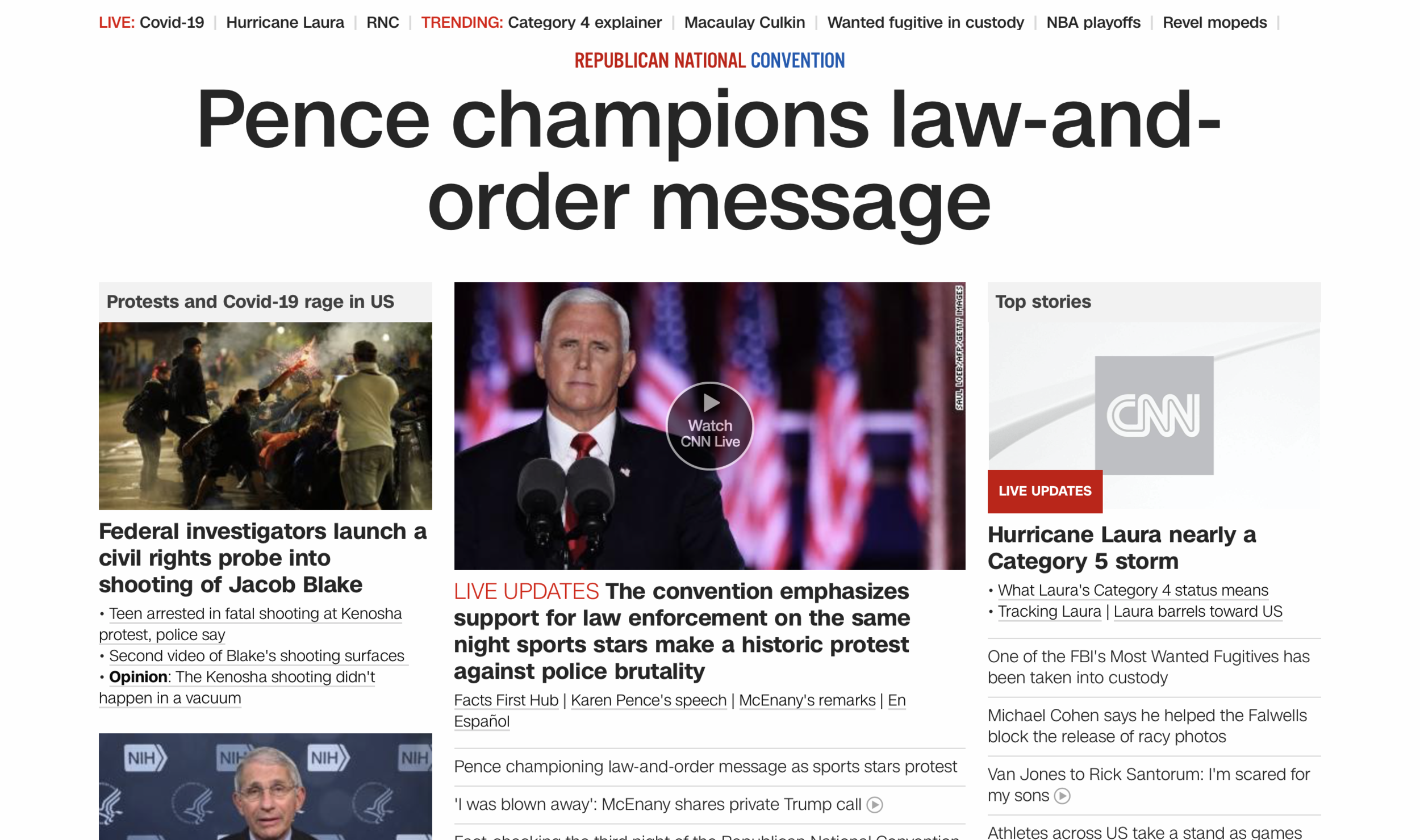Law and Order
As I was doom scrolling Twitter and browsing news headlines this evening, one oft-shouted phrase of the moment (the RNC), particularly salient in the current context, “LAW and ORDER!” kept appearing.
That is all some Republicans have to say to gain the support of many Americans. It is beyond cliche. My mind paused on that requirement of Republican politicians running for office, its ubiquity. (Of course, just to be clear, the headlines and pronouncements today are in the context of the shooting of Jacob Blake in Kenosha, Wisconsin.)
After turning away from the current news, I started doing some reading for my project: Chinese Immigration; Its Social, Moral, and Political Effect. Report to the California State Senate of its Special Committee on Chinese Immigration (1878). As one might expect of a report written just before Congress passed the Chinese Exclusion Act (1882), and the authors insistence notwithstanding that it was based on facts adduced from the evidence, it is a thoroughly anti-immigrant, racist screed against the Chinese in California.
But what struck me right away was this assertion at the top of the first document the included, “An Address to the People of the United States Upon the Evils of Chinese Immigration”:
It has often been said that the State of California is the “Child of the Union.” It is certainly true that her citizens are the representatives of society as it exists in the other States. They brought with them to this State—that love of law and order which is part of the traditions of our race (8).
And there it is, “that love of law and order,” just like we say nearly one hundred and fifty years later. I do not think that phrase has really stuck out to me in my study of American history (outside the context of what I note above). I know we like to say “we are a nation of laws” and law is central to understanding our culture. But that phrase, “law and order,” means something specific. Interestingly, not only is the wording the same then and now, but the meaning is the same. In this report on the Chinese it was used to justify the exclusion of Chinese immigrants because they were not capable of understanding or adhering to an American notion of law and order. I wonder if someone has done any specific analysis or genealogy of that phrase?
The next paragraph starts with another sentence that bears relevance to the current crisis: “All must admit that the safety of our institutions depends upon the homogeneity, culture, and moral character of our people” (8). “The homogeneity.” In this instance the authors meant it in a racial sense, I am sure. They connected the “safety of our institutions” to race and exclusion. In this case, they were referring to the Chinese, but it can readily be applied to Black Americans today. Racist white America wants conformity and absolute obedience to “our institutions,” which in the current context means the police.
This observation connects nicely to another intellectual encounter I had today, the song “War” by Bob Marley. The song is adapted from a speech given to the United Nations by the Ethiopian Emperor Haile Selassie.
Until the philosophy which hold one race superior / And another / Inferior / Is finally / And permanently / Discredited / And abandoned / -Everywhere is war - / Me say war.
That until there no longer / First class and second class citizens of any nation / Until the colour of a man's skin / Is of no more significance / than the colour of his eyes / - Me say war.
That until the basic human rights / Are equally guaranteed to all, / Without regard to race / - Dis a war.
That until that day / The dream of lasting peace, / World citizenship / Rule of international morality / Will remain in but a fleeting illusion to be pursued, / But never attained / - Now everywhere is war - / War.
And until the ignoble and unhappy regimes / that hold our brothers in Angola, / In Mozambique, / South Africa / Sub-human bondage / Have been toppled, / Utterly destroyed / - Well, everywhere is war - / Me say war.
War in the east, / War in the west, / War up north, / War down south - / War - war - / Rumours of war. / And until that day, / The African continent / Will not know peace, / We Africans will fight - we find it necessary / - And we know we shall win / As we are confident / In the victory Of good over evil.
So here is the truth: racist America demands unquestioned obedience to the police. “Just do what the police say and no one will get killed.” Those who would claim to not be racist but also cannot tolerate or even understand resistance to the police will not accept that one of “our [racist] institutions” is the police. For those people to understand the protests–and destruction–that have occurred throughout this summer, they need only to listen and really internalize what Selassie and Marley said: “Until the colour of a man's skin / Is of no more significance / than the colour of his eyes / - Me say war.” War. That is not figurative or metaphorical. It may not be what the popular imagination conjures up for the idea of war. But it certainly means disorder and violence.

